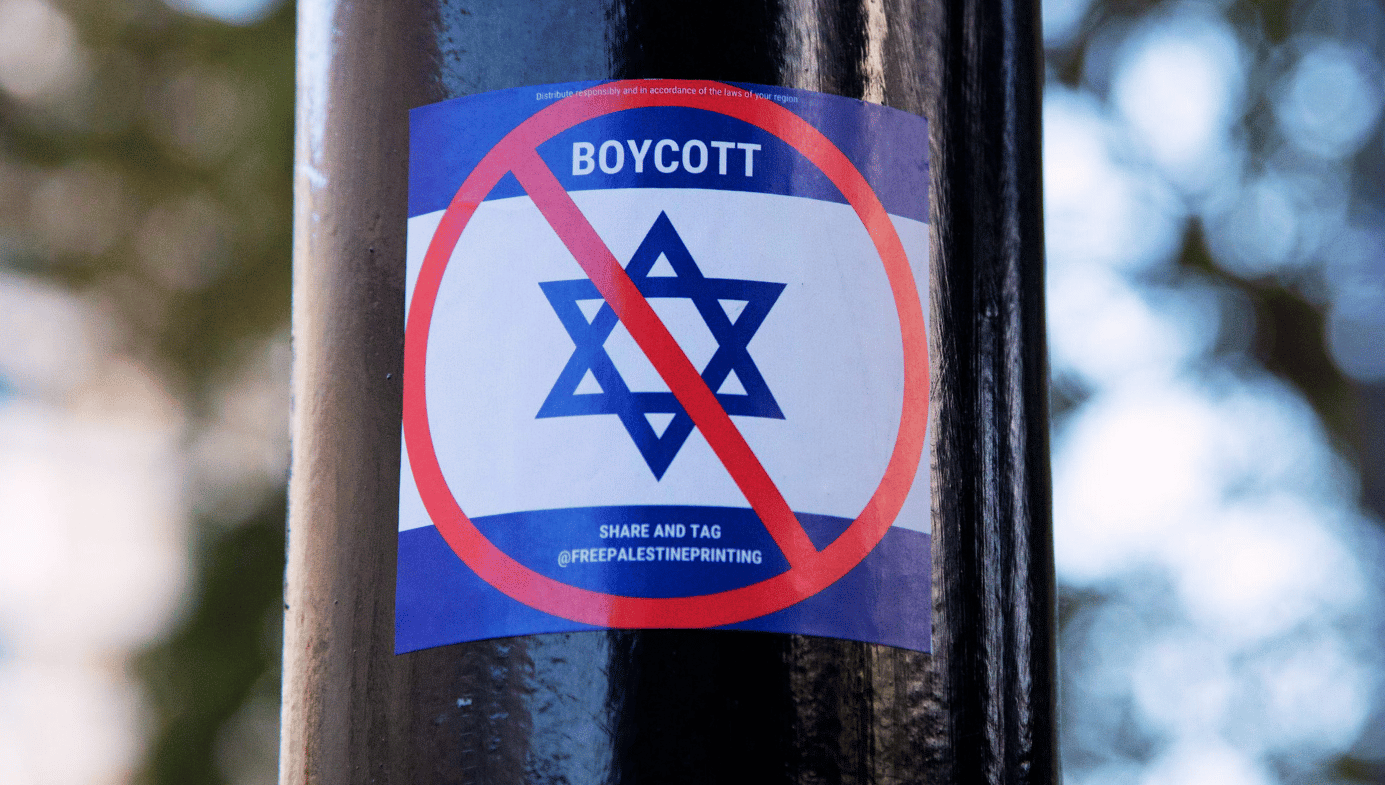Israel
Open Letter Against the Boycott of Israeli Universities
The Academic Boycott of Israel Is Selective, Unfair and Counterproductive. Sign Our Open Letter Below.

Universities across the world are facing pressure—from students but also from academic staff—to cut ties with Israeli institutions over the war in Gaza. In the US, a dozen universities have struck agreements with activists and partly conceded to their demands, including divestment from Israeli companies. In Europe, dozens of Spanish universities and five Norwegian universities have resolved to sever all ties with Israeli partners deemed “complicit” in the war in Gaza. Several Belgian universities have now suspended all collaborations with Israeli universities because of their collaborations with the IDF. Even without a formal boycott, pressure from anti-Israel protests and the BDS movement has already led to pervasive exclusion of Israeli scientists and students. In the liberal Israeli newspaper Haaretz, over 60 academics have testified what this amounts to: cancelled invitations to lectures and committees, desk rejections of papers on political grounds, freezing of ongoing collaborations, disrupted guest lectures, and withdrawn co-authorships.

What arguments are there for such a boycott? An open letter at Ghent University signed by more than 1500 students and staff, including dozens of professors (mainly from the humanities), denounces the stark “contrast” between the treatment of Israel and that of Russia in the wake of Putin’s invasion of Ukraine, when many Western universities cut all ties with Russian universities. According to the signatories, Israel is currently committing a “genocide” in Gaza, and they demand that any cooperation with Israeli universities be suspended “as long as the current war continues.”
However, the “contrast” in reactions to both conflicts is perfectly defensible. Ukraine was brutally invaded by Russia without any prior provocation or military threat, simply because Putin imagines that Ukraine is a “fictional” nation that has no right to exist. If thousands of Ukrainian fighters had committed a gruesome massacre on Russian soil in January 2022, methodically slaughtering 1,200 innocent men, women, and children and taking another 250 hostages, only then would there be any semblance of similarity between both conflicts (as with many open letters from pro-Palestinian protestors, the letter completely ignores the terrorist attack of 7 October). It should also be noted that almost all Russian universities pledged their unequivocal support of the invasion of Ukraine, in a statement released by the Russian Union of Rectors and signed by more than 300 academic institutions.
As for the genocide charge, we believe it is as obscene as it is baseless. The tragic death of civilians as an unwanted side-effect of legitimate military objectives is completely different from the deliberate and methodical killing of civilians. It is perfectly reasonable to criticise Israel’s current military strategies and to question the sufficiency of measures taken to prevent civilian casualties, but it is absurd to pretend that the IDF is pursuing the opposite goal. The only genocidal party in this conflict is Hamas, which in its founding charter fantasises about the killing of the last Jew on earth.
In any event, a call for an “immediate and permanent ceasefire” and a boycott “as long as the war continues,” as the open letter demands, entails that no form of warfare against Hamas is deemed acceptable, which amounts to a de facto denial of Israel’s right to self-defence under the international law of war. No country would tolerate a terrorist group like Hamas at its border, least of all after a pogrom like that of 7 October.
Israel has the right to eliminate Hamas’s military capacity in Gaza, but unfortunately this terrorist entity has been digging hundreds of kilometres of reinforced tunnels for over 17 years (but not a single shelter for its civilian population). Hamas also has a long history of using Palestinian civilians as human shields, and deliberately firing rockets from hospitals, schools, UN buildings, mosques, and in the vicinity of humanitarian zones. All these reprehensible tactics are mainly aimed at getting as many “martyrs” as possible in front of cameras, in order to manipulate Western political opinion and turn it against Israel. Judging by the sentiments prevalent on many college campuses, Hamas’s cynical strategy has been a resounding success.
No one in their right mind would deny that the humanitarian situation in Gaza is horrific, and no one can remain indifferent to the unacceptable suffering of Palestinian children. We would all like to see an end to the violence as soon as possible. Still, to demand that Israel accept a permanent ceasefire without any further conditions (the elimination of Hamas’s military capability and the release of hostages) amounts to an unequivocal choice for Hamas and against Israel.
Urban warfare is always hell, and was no less so in Mosul and Raqqa, when a Western alliance carried out a massive bombing campaign against the Islamic State, with broad support from almost the entire Western world. We now know that thousands of civilians died in Mosul alone, and unlike in Gaza, people had little or no opportunity to evacuate.
How many academics in Europe or the US would adopt the same anti-war attitude if a terrorist group had slaughtered over 1,200 of their compatriots (the equivalent of 13 times the casualties of 9/11 for the US) and proudly live-streamed their atrocities? And not on “occupied” or “colonised” land, but on internationally recognised territory. Many Westerners, accustomed to decades of peace and security, no longer understand what it means to live in a fragile democracy (the only one in the region), which has been under existential threat since its founding and is currently surrounded by multiple terrorist groups committed to wiping it off the map.
Hamas alone, leaving aside the greater threat of Hezbollah in the North, has been indiscriminately firing rockets for two decades (every house in Israel is required by law to have a bomb shelter). Under such extreme circumstances, it seems understandable—not to say self-evident—that some Israeli universities collaborate with the military in various ways: for instance, to develop legal frameworks for warfare or defence capabilities. Would anyone consider it ethical to sever our collaborations with Ukrainian universities just because they are now joining forces with the Ukrainian army to defend their country from annihilation, even if the Ukrainian army has occasionally committed war crimes?
In our view, the current Israeli government can be held accountable for many things, including its aggressive settlement policy in the West Bank. Not only are many settlements illegal or at least contested, but extremist settlers have been engaging in reprehensible collective violence against Palestinians, with virtual impunity.
Still, why the relentless and exclusive focus on Israel? Many Western universities also have bilateral partnerships with universities in Indonesia, China, Qatar, Turkey, and Malaysia, countries that are hardly known for their stellar human rights record, that also engage in military occupations, and that are ranked (far) below Israel on the Democracy Index of The Economist or that of the V-Dem institute. Some even have bilateral agreements with Birzeit University in Palestine, where Hamas has a dominant presence. Birzeit excludes Israeli Jews, names buildings after convicted terrorists, and posted “Glory to the martyrs” on its social media account three days after October 7. Should we also cut all those partnerships, or is this just about exclusively demonising one country?
In liberal democracies such as Israel, universities are indispensable parts of civil society, which facilitate the critical examination and questioning of government policies. Despite the country’s flaws, such criticism is still very much possible in Israel. Those who oppose the policies of Benjamin Netanyahu and his far-right coalition partners will find numerous allies among Israeli academics. Many of them took the lead in the protests against Netanyahu’s dangerous judicial reforms of 2023, which threatened Israel’s democratic character. Finally, Israeli universities enrol tens of thousands of Palestinian and Arab students, often supported by government programs. They too will be targeted by a blanket boycott of Israeli universities, which will in no way contribute to peace, but will instead further weaken the constructive and liberal forces in Israeli society.
You can sign this open letter through the Academic Engagement Network.
Authors
Dr Maarten Boudry, Ghent University
Prof. Mark Elchardus, Free University of Brussels
Signatories
Prof. Steven Pinker, Harvard University
Prof. Jerry Coyne, University of Chicago
Prof. Richard Dawkins, University of Oxford
Prof. Fania Oz-Salzberger, University of Haifa
Prof. Marc Salomon, Dean of Business School, University of Amsterdam
Prof. Benny Morris, Ben-Gurion University
Prof. Jonathan Haidt, New York University
Prof. Michael Walzer, Institute for Advanced Study, Princeton
Prof. Amanda Kluveld, Maastricht University
Prof. Freek Van de Velde, KU Leuven
Prof. Thijs Stuyver, Sciences et Lettres University (PSL), Paris
Prof. Matthias Storme, KU Leuven
Prof. Jessica Roitman, VU Amsterdam
Prof. Filip Buekens, KU Leuven, Tilburg University
Prof. Matthew Shawkey, Ghent University
Prof. Marc De Vos, Ghent University
Prof. Ruud Koopmans, Humboldt University of Berlin
Em. Prof. Dr Martijn Katan
Prof. Niek Pas, University of Amsterdam
Prof. Marc Cogen, Free University of Brussels
Em. Prof. Boudewijn Bouckaert, Ghent University
Em. Prof. Henri Rosenberg, Radboud University
Dr Jelle van Baardewijk, VU Amsterdam
Prof. Bart De Spiegeleer, Ghent University
Prof. Dr Jonathan Silk, Leiden University
Daniëlle van Lijf, Erasmus School of Law
Shira Huizing, UU, Erasmus University Rotterdam
Em. Prof. Sonja de Leeuw, Universiteit Utrecht
Dr Rachel Levy, University of Amsterdam
Dr Tomer Fishman, Leiden University
Matan Yakobovich, University of Groningen
Prof. Vered Raz, Leiden University Medical Centre
Dr Russell Blackford, University of Newcastle, Australia
Prof. Dirk Inzé, Ghent University
Prof. Nicolaas Lumen, Ghent University
Em. Prof. Bart Verschaffel, Ghent University
Prof. Kristl Vonck, Ghent University
Prof. Eric Muraille, Université Libre de Bruxelles
Prof. Jan Lagasse, Ghent University
Dr Anton De Spiegeleer, Ghent University
Dr Liese Boudry, Free University of Brussels
Em. Prof. Ronald Commers, Ghent University
Dr Teun Voeten, Leiden University
Prof. Paul Vandenbroeck, KU Leuven
Prof. Frank Fleerackers, KU Leuven
Dr Rudi Roth, Université de Paris
Dr Catherine de Jong, anaesthesiologist, Amsterdam






